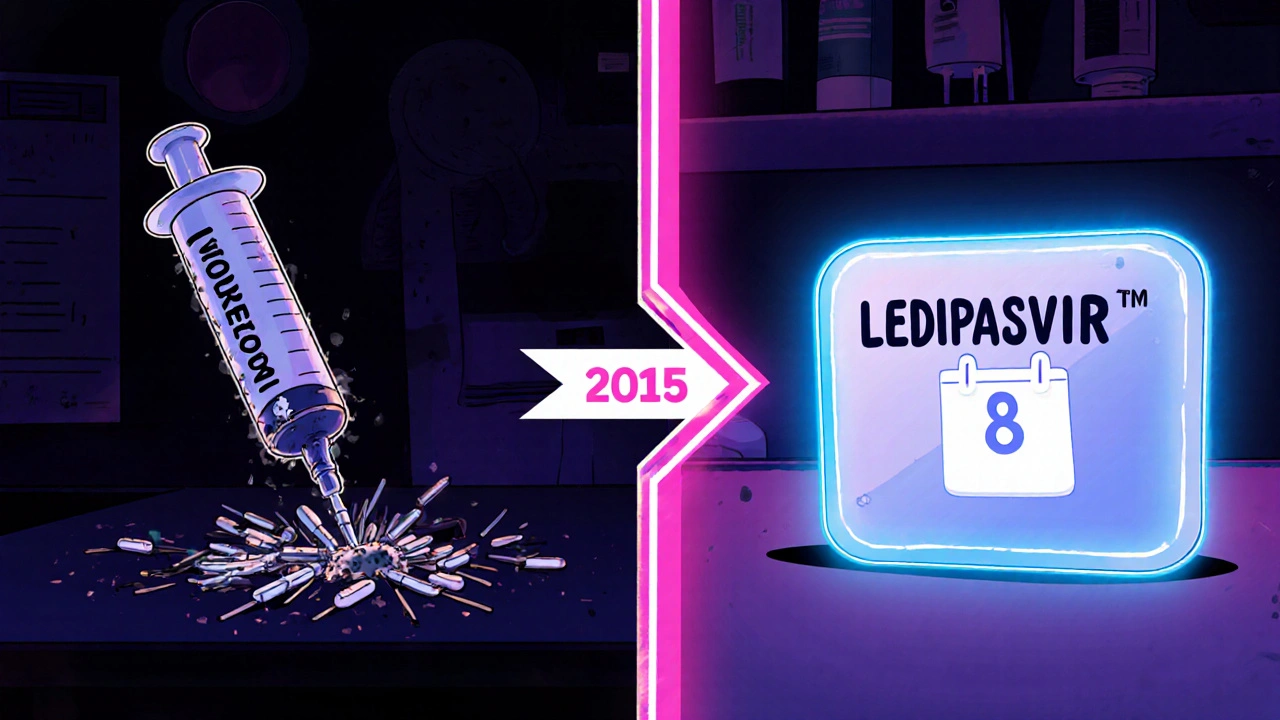Hepatitis C Treatment: What Works, What to Avoid, and New Options
When it comes to Hepatitis C treatment, a medical approach to eliminating the hepatitis C virus from the body, often using antiviral drugs. Also known as HCV therapy, it’s no longer the long, brutal process it once was. Today, most people are cured in 8 to 12 weeks with just one pill a day. The virus, which attacks the liver, used to lead to cirrhosis, liver failure, or cancer for many. But modern treatments have flipped the script.
Today’s direct-acting antivirals, a class of medications that target specific parts of the hepatitis C virus to stop it from multiplying like sofosbuvir, daclatasvir, and glecaprevir/pibrentasvir are the gold standard. They work by blocking the virus’s ability to copy itself. No interferon. No shots. No months of side effects like fatigue, depression, or flu-like symptoms. These pills are taken orally, have fewer than 5% serious side effects, and cure over 95% of cases—even in people with advanced liver damage.
But not everyone knows they have it. Hepatitis C often shows no symptoms for years. That’s why testing matters. If you were born between 1945 and 1965, had a blood transfusion before 1992, used injectable drugs, or got a tattoo in an unregulated setting, you should get tested. Early detection means early cure. And curing hepatitis C doesn’t just stop the virus—it can reverse some liver scarring and lower your risk of liver cancer.
What about older treatments? Interferon and ribavirin? Those are mostly gone from clinics. They were harsh, had low success rates, and caused serious side effects. If someone still suggests them, ask why. The science has moved on. You don’t need to suffer to get well.
Cost used to be a barrier. But generic versions of these drugs are now widely available and affordable, even in low-income countries. Many insurance plans cover them fully. If you’re worried about price, talk to your doctor or a patient advocacy group—there are programs to help.
And while these drugs cure the virus, they don’t undo years of damage if your liver is already badly scarred. That’s why liver health after treatment matters. Avoid alcohol. Watch your diet. Get vaccinated for hepatitis A and B if you haven’t already. Your liver can heal, but only if you give it a chance.
Some people wonder if natural remedies help. Milk thistle? Vitamin D? There’s no solid proof they cure hepatitis C. They might support general liver health, but they won’t kill the virus. Relying on them instead of proven meds can be dangerous.
What’s next? Research is looking at even shorter treatments—maybe just 4 weeks. Some are testing once-a-month pills for people who struggle with daily dosing. Others are studying how to prevent reinfection in high-risk groups, like people who still use injectable drugs.
Below, you’ll find real, practical guides on what these treatments actually look like in practice—how they’re chosen, what to expect, and how to avoid common mistakes. Whether you’re newly diagnosed, finishing treatment, or helping someone who is, these posts give you the clear, no-fluff facts you need.
Ledipasvir’s Impact on Global Hepatitis C Treatment
Explore how Ledipasvir transformed hepatitis C therapy worldwide, boosting cure rates, shaping WHO elimination goals, and what challenges and future prospects lie ahead.
